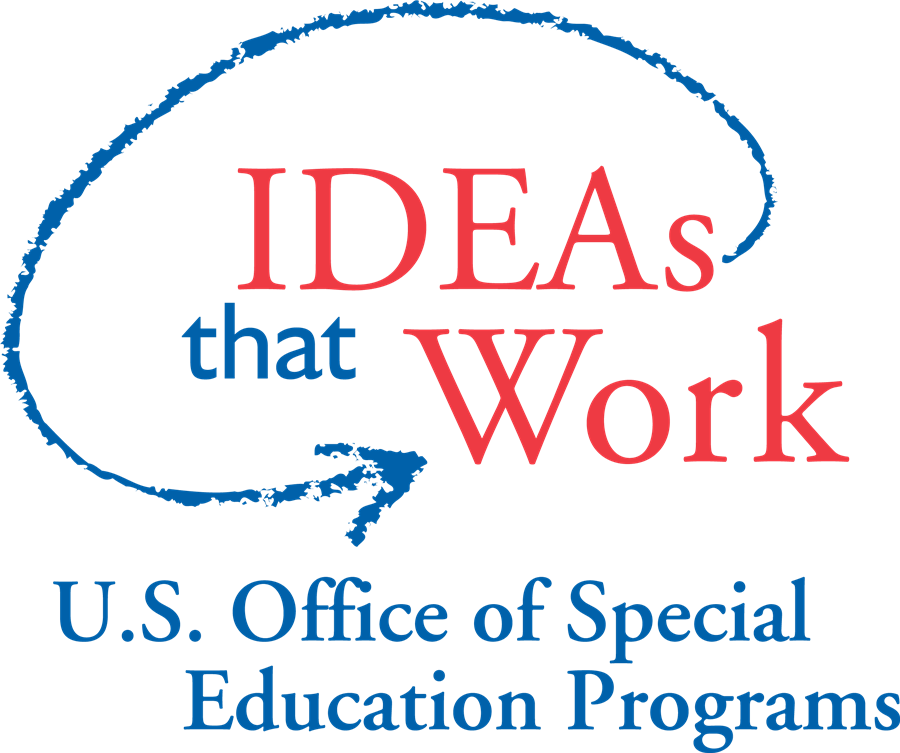-

What is the Oregon DeafBlind Project?
 The Oregon DeafBlind Project is a federally-funded project that provides technical assistance, training, and information to support services for children in Oregon who are DeafBlind. The project serves children and youth from birth to 21 years of age. This project is supported by the U. S. Department of Education, Office of Special Education Programs (OSEP), State Technical Assistance Project to Improve Services and Results for Children Who Are Deaf-Blind (CFDA 84.326T) grant funds.
The Oregon DeafBlind Project is a federally-funded project that provides technical assistance, training, and information to support services for children in Oregon who are DeafBlind. The project serves children and youth from birth to 21 years of age. This project is supported by the U. S. Department of Education, Office of Special Education Programs (OSEP), State Technical Assistance Project to Improve Services and Results for Children Who Are Deaf-Blind (CFDA 84.326T) grant funds.As of October 1, 2023, the Oregon DeafBlind Project is located and operated by Columbia Regional Inclusive Services (CRIS) where we have programs to serve students who are Deaf and hard of hearing, blind and visually impaired, DeafBlind, autistic, orthopedically impaired, and have traumatic brain injuries. The Oregon DeafBlind Project may work in coordination with other programs and staff to support students already receiving services from CRIS.
Eligibility for Services
The project provides services at no cost to districts and families. To receive DeafBlind technical assistance, please complete the referral form. Any child or youth with a current Individual Family Services Plan (IFSP) or Individualized Education Program (IEP) served under the special education category of DeafBlindness is eligible for technical assistance via the ORBP. Per the Individuals with Disabilities Education Act (IDEA), “Deaf-blindness means concomitant hearing and visual impairments, the combination of which causes such severe communication and other developmental and educational needs that they cannot be accommodated in special education programs solely for children with deafness or children with blindness.” 34 CFR 300.8 (c) (2). Once we have received the referral and documentation showing a current eligibility via DeafBlindness, we will reach out to whoever submitted the referral to discuss needs and next steps.
Understanting DeafBlindness
A person with vision loss who also has hearing differences may have limited access to information from the environment, which makes learning difficult. When this occurs, the child may be considered deafblind. Specialized accommodations and supports in school enable children who are DeafBlind to learn, communicate, and interact with the world.
DeafBlind Technical Assistance
Technical assistance provides more than a set of skills. It provides a framework upon which educational professionals, families, and the Project can analyze their needs, assess their strengths and weaknesses, plan, grow and help their teams to prosper. Technical assistance and support to IEP teams serving students who are DeafBlind enables the teams to implement the highly specialized services needed in the provision of a free, appropriate, public education for learners who are DeafBlind, residing in Oregon.
A Note About the Use of the Term DeafBlind
This was adapted from the Texas DeafBlind Project. In 2016, the American Association of the DeafBlind changed the presentation of their name from Deaf-Blind to DeafBlind. In a Facebook posting on April 6, 2016, the group noted there “…is the need to shift from a medical view of being a DeafBlind person to a cultural one. We now view our community as a cultural community.” Helen Keller National Center has recently made this change as well.
Other groups have noted a strong preference for using a combined term with no capitals, e.g., deafblind. DeafBlind Citizens in Action, has chosen to use deafblind as a combined non-capitalized word (except in their title) to recognize a distinct, unified disability. Among international organizations such as Deafblind International, The World Federation of the Deafblind and the UN Convention on the Rights of Persons with Disabilities, the word deafblind is also the most commonly used form of the term. There are also organizations that use the Federal IDEA format of deaf-blind, such as the National Center on Deaf-Blindness. This is clearly an ongoing conversation within the community. The Texas DeafBlind Project values that this is a community-led effort and respects each person and their family’s right to use the identity that reflects their lived experiences and preferences.
Questions regarding the Oregon DeafBlind Project should be sent to Lisa McConachie at lmcconac@pps.net.
-
PROJECT PERSONNEL
Dr. Lisa McConachie, Project Director
call 503-916-5570 x78334
Darlene Daniels, Education Consultant
ddaniels@pps.net or call 503.916.5570 ext 78234
ACCESSING SERVICES
Initial Request for Technical Assistance
FAMILY REFERRAL / REQUEST
To request technical assistance or if you have any questions about our services and how to access them, email Darlene at ddaniels@pps.net or call 503.916.5570 ext 78234
CENSUS
RESOURCES
National Center of DeafBlindness
World Federation of the DeafBlind
American Association of the Deaf-Blind (AADB)
Literacy for Children with Vision & Hearing Loss




